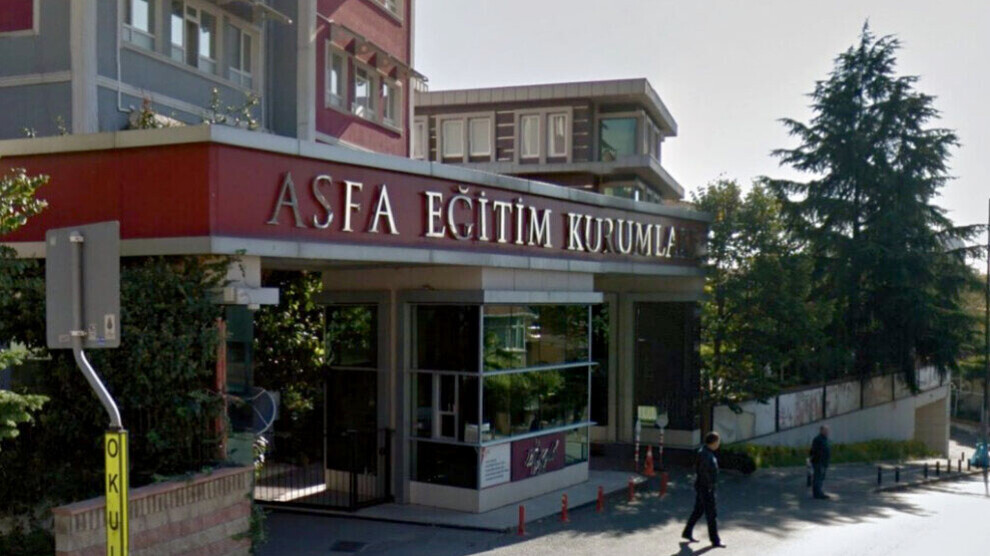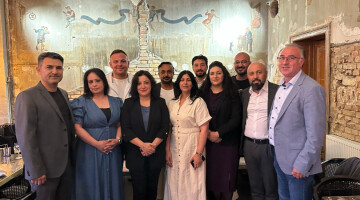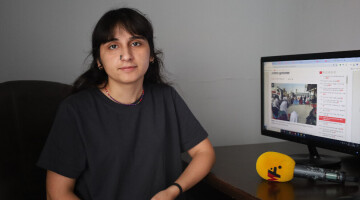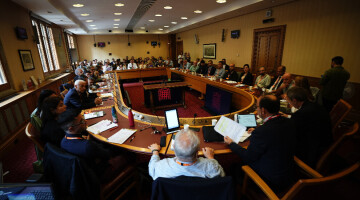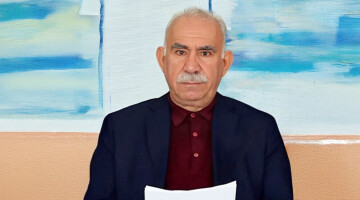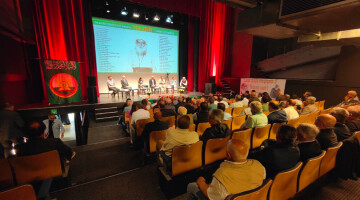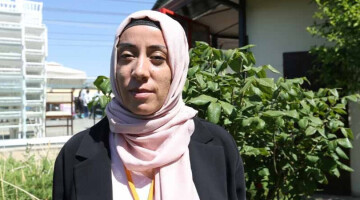Thousands of students in Turkey and Northern Kurdistan are forced to stay in boarding schools and dormitories run by religious orders for economic reasons or due to pressure from their families. There are increasing reports of sexual violence, but above all of systematic indoctrination and psychological terror. After the suicide of the medical student Enes Kara, who left behind a suicide note and a video in which he explained that he could no longer bear the daily indoctrination in the dormitory of the Islamic fundamentalist ‘Nur’ order, more and more former students and pupils are now beginning to speak out about their experiences in the boarding schools and dormitories of the orders.
A student at the ASFA College of the Nakshibendi Order, who does not want to give her name, spoke to ANF about the situation in the hostels. She attended a boarding school to get away from her family, otherwise it would not have been possible to "stay alive" and get a scholarship.
She says: "Those who were educated at this school since primary school or kindergarten kept asking me: 'Why did you choose this place?' For me, it was the only place my family would accept. I didn't really know what kind of place I would end up in anyway. I was still small, but I got to know it as I went along."
"Indoctrination: learning was not possible"
The college offers scholarships, services, accommodation and supplies to students who score more than 490 points in the entrance exams. The young woman did not realise what conditions this would entail. There are 13 to 14 people living in the houses of the order, with four people in each room. The food is delivered, and the residents are responsible for cleaning. In the houses where these young people of high school age live, there are "elder sisters" who studied at the university. Apart from that, there is no security or system to protect the minors. Instead, strict religious instruction is carried out. The woman tells: "We were woken up early for morning prayers. In the evening, we had to have 40 minutes of religious talks. On Thursdays there were Koran recitations. Every fortnight there were talks in the form of seminars at the weekend." These events were all compulsory. Because of this compulsory programme, learning was practically impossible.”
"Women's voice is considered a sin"
The young woman talks about her school life, saying, "When I started school, I was more conservative. I wore a headscarf. But I think it is needless to say that it is child abuse when girls of that age are persuaded to wear headscarves. At school, girls and boys were separated. When we went to school, the teachers would reprimand us. They said, for example, that this place was forbidden for girls, we were not allowed to be in the middle courtyard. We had to take a break in a small garden in the backyard. Once there was a debate between the boys' and girls' high schools. In the hall, the boys could sit in the front, the girls had to sit in the back. If we won, the girls in the hall did not have the right to rejoice or cheer, while the boys shouted around as they pleased. I will never forget the religious culture teacher stepping on stage and declaring 'women's voice is a sin'."
"You did not become what we wanted"
The young woman describes the visit of a teacher to her accommodation during the preparations for the exams for university admission as a formative event. While there, the teacher discovered philosophy books on her. She recalls: "The philosophers I read were not that extreme either. It was about basics like Plato, Aristotle ... Nevertheless, I was reported to the school. Four or five teachers at the school called me and said: 'We also had other students who studied here and went astray. What kind of writers are they, why do you read such books? You haven't become the lady we wanted.' In the last year, they noticed that my attitude had changed. Even though I didn’t do anything, I had to go to the director's office once a week. I was blacklisted. They did everything they could to make me feel bad every time I spoke to them. They threatened to kick us out of school every time we made a mistake because of our economic situation. They threatened to cancel my scholarship and kick me out of the accommodation."
"I am telling this for the people who are still there"
The young woman wanted to graduate and study engineering but her father was invited to the school before graduation. After meeting with the headmaster, the father refused to allow his daughter to study at the University of Technology (ODTÜ). Her father told her, "I will not send you to that communist nest, I will not let you study there." Although the young woman wanted to study engineering, she then had to study medicine.
The young woman concludes about the consequences of her time at boarding school: "The consequences lasted for a long time, I locked myself in the bathroom and stayed there. I thought I was unpopular, a bad person, even though I did nothing. And then I thought I had to take care of myself. At that time, with the solidarity of a friend, I started to feel more comfortable and free when I took off the headscarf. And now I feel the responsibility: there are still people there who are going through what I went through. Also, I still experience the effects of those days. I feel solidarity with them. That's why I want to tell them this. I somehow saved myself, but those invisible hands are still around my neck."

